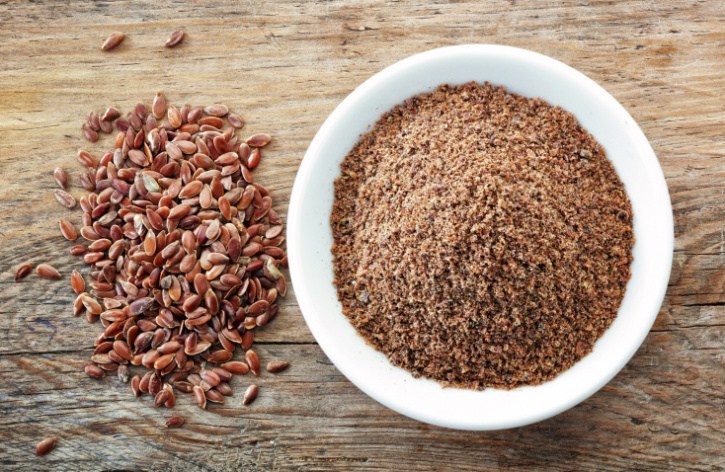Can a Calorie Restrictive Diet Ruin My Metabolism?
A writer asks, “I’ve heard that my metabolic rate screeches to a halt if I go on a calorie restricted diet. I’ve heard my metabolism will be ’ruined for life’ if I lose weight that way. OMG! Is this true?”
The answer is a big authoritative NO, evidenced by NIH funded research at the University of Colorado Health Sciences Center and the University of Pittsburg School of Medicine. I’ll explain more about that study below, but first, let’s clear up any misunderstandings you may have about a “calorie restricted” weight loss diet, as opposed to any other weight loss diet that works, as if there was such a thing.
The New England Journal of Medicine published a landmark study about a year ago of the longest, largest and most rigorous test of several popular diet strategies (low carb vs low fat, etc.), to see which worked best. The research, funded by the National Heart, Lung and Blood Institute, showed that as long as people reduced their caloric intake, the diet worked, and it didn’t matter how. All the diets worked, that is, any diet that was low in calories. A diet that was not low in calories (not calorie restrictive) did not work. The lesson, researchers say, is that people lose weight if they lower their calories. “It really does cut through the hype,” said Dr. Frank M. Sacks, the study’s lead author and professor of cardiovascular disease prevention at the Harvard School of Public Health.
So, let’s be clear on this. The only way to lose weight is to restrict your caloric intake so that it is lower than your metabolic rate. It could be a goofy diet, or it could be real food in a way you can live with. Doesn’t matter. Create a deficit of 3500 calories and you lose a pound. If you are a 5′ 0″ woman with a metabolic rate of 1500 calories per day, and you restrict it to 1000, that would equate to a pound a week, 50 lbs. in a year. That is not an extreme restriction that produces a fast loss, but it is reality, and it is a fantastic success for my clients who do it. It changes their life. Forget about phony baloney gimmicks that promise to get around the realities of thermodynamics. Forget about losing weight without restricting calories. It’s not going to happen in this Universe. “Restricting” your caloric intake is the only way to lose weight, whether it is a goofy diet where you don’t realize that’s what you’re doing, or real changes with real food and habits that you’ll make permanent.
Now, before you keel over, thinking you’ll never be able to lower your calories for even a day, let alone for life, let me assure you that it can be done with the right method. I’ve trained thousands to achieve permanent weight loss, and some have even gotten to the point where they say it’s easy, second nature. Doing what they need to do to maintain their success has become a satisfying way of life. For more information, go to www.TheAndersonMethod.com .
Now, back to the original question: Does reducing your caloric intake for a long period of time (I lost 140 lbs. in 18 months) permanently lower your metabolism so that when you’re done, you’re worse off than before?
It is widely accepted that after a while on a reduced calorie regimen, your body becomes more efficient metabolically and tries to get by on the lesser amount you’re eating, making it harder to lose weight. You may have found that after a month or so on a diet, the weight loss slows, and you start hitting plateaus. After a few months, you may find that you don’t feel hot as much as you did before the diet, or you feel chilly more often and the plateaus get longer. Most people are unable to a continue a diet in the face of these discouragements, and that’s an understatement. Most of us have a hard time sticking to a diet for even a week, even when it’s working! While some clever entrepreneurs find that this slow-up creates a great market for products and magic to change this, there is little you can do to change this evolutionary and genetically predetermined response to “undereating”. Its nature’s way to help you survive a famine. The closest you can come to negating this “lowered metabolic response” is to use the kind of strategies employed by The Anderson Method to thwart it, such as the lifetime eating patterns we’ve developed with lower calories on five of seven days, or a diet that does not eliminate your normal foods. These strategies are designed to “fool” your body so it does not sense a lack of food abundance. They are also designed to satiate the mind/body. I introduced this method over twenty-five years ago, and it has now become commonplace in the weight loss community. Increased activity is also a good idea.
Rather than try to change your body’s “metabolic efficiency response” to less food, an inborn trait that has been developed through many generations of evolution, it makes more sense to figure out how to continue losing weight in spite of it. This, we have done, by persisting in a reduced calorie regimen sufficiently low to lose any amount of weight you want, no matter how long it takes, and keep it off. With my method, we have found a way to thwart this “metabolic efficiency response”, and lose as much as you need to, and keep it off.
If our body does indeed lower its metabolism when we give it less food for an extended period of time, does it stay low forever? This is the fear of my writer with her question. Does the metabolic rate go back up when you stop eating very little, or does it get “ruined”, staying low forever and therefore making it easier to gain weight after the diet? Are we worse off trying to lose weight?
This is the question addressed by the research study I first referred to, funded by the NIH, at the University of Colorado Health Sciences Center and the University of Pittsburg School of Medicine. Do people who have lost large amounts of weight through calorie restriction now have a lower metabolism because of the dieting?
For this, they compared a group of people who had lost large amounts of weight to like-sized people who had never been overweight. Working with the National Weight Control Registry, the largest and oldest longitudinal study of successful weight loss in the world, they assembled a group of documented formerly obese people who had kept the weight off for over a year, and compared their metabolic rates and body composition with like-sized people who had never been overweight and never been on calorie restricted diets. (Even though I am one of the study subjects of the NWCR, I was not one of the participants in this study and have had no contact with the NWCR other than being one of their guinea pigs.)
The methods of assessment were not subjective reporting by participants. In other words, self-reports of metabolism like “I really don’t eat that much anymore and still gain weight” were not accepted. The RMR (resting metabolic rate) of all participants was scientifically measured using ventilated-hood, indirect calorimetry with a SensorMedics 2900 oxygen uptake system. This device measures the amount of oxygen used in the combustion of your biofuel, and therefore the amount of calories you are burning. There is no fooling this device.
They found that the metabolic rates of those who had lost a great deal of weight on long-term calorie restricted diets was no different from people who had never been “dieting”. Losing weight on a “calorie restricted diet” does not ruin your metabolism.
The conclusion of the study? “We found no indication of increased energy efficiency in a group of individuals who have been successful in long-term weight maintenance. The RMR in this group of reduced-obese subjects was not significantly different from that in control subjects. This suggests that an increased metabolic efficiency is not an obligatory consequence of weight reduction. “
However, you may ask, if we lose weight, is our metabolic rate lower than when we were overweight? Perhaps, slightly. As I point out in my book, The Anderson Method, your metabolic rate, without activity being considered, depends on the amount of lean body mass you have, which depends mainly on your height. If you were to reduce greatly the amount of lean body mass you have, then yes, your metabolic requirement would be lower. However, most of us who are overweight are overweight because we’ve accumulated excess fat, not excess muscle. Fat is not metabolically active like muscle, so when we lose our excess fat, it does not change our metabolic rate in any real way. This has been borne out in case after case with my clients who have their metabolic rates assessed scientifically with respiration calorimeters, like the SensorMedics 2900. In fact, their living metabolic rates are often higher after weight loss with “calorie restrictive dieting” because they are able to get around better and they are more active.
Don’t let nonsensical diet and weight loss malarkey keep you from doing what you need to do to lose weight and have a healthier happier life. Will you need to eat less than the overindulgence we have gotten used to? Yes. Will you need to eat less for the rest of your life to keep it off? Yes. Is it awful and impossible to do this? Absolutely not.
You can learn to live in a new way that is much healthier and happier than what you’ve been doing if you are overweight. It will be work, harder than what you’ve been doing in many respects. But being overweight is not an easy road. Having been there, I know this too well. Getting healthy is work, and there are things we have to let go of and change that are hard to let go of and change. However, there is a happier and more satisfying way to live waiting for you if you want to solve your weight problem. Follow me. For more information, go to. www.TheAndersonMethod.com .
-
Important Supplements for Exercise
Have you made a decision to lose weight? Have you tried numerou
-
The Benefits Of The Rebook Fusion Cross Trainer
How Cross Trainers Can Do What Gym Could Have Done For You For those
-
Forming Easy Weight Loss Diet Solutions -- Beginning with the Essentials
When you think about easy weight loss di
-
Why Do Physicians Recommend High Protein Diets For Medical & Surgical Weight Loss Patients?
Studies have shown that patients who consume a high protein, low ca
-
Dont Obsess About Food
One of the dangers of dieting is the diet mentality. The constant
-
Follow These Tips To Hit Your Fitness Goals
Many people consider fitness to be an important goal. However, l
- DON'T MISS
- Simple Tips to Healthy Eating
- Weight Loss Patient Safety Recommendations
- This beverage helps boost memory…
- Why its done
- How To Efficiently Lose Weight Build A Better Body And Attain And Maintain Optimal HealthForever
- Daily Physical Activities Can Add Up To Weight Loss
- Your Finest Days Are Not Behind, Lose Weight Now
- Why Is Weight Loss Important?
- Slimming Pills Work For Men & Women Who Hate Exercise
- Cabbage Soup Diet For Dieters Who Dont Like Cabbage




